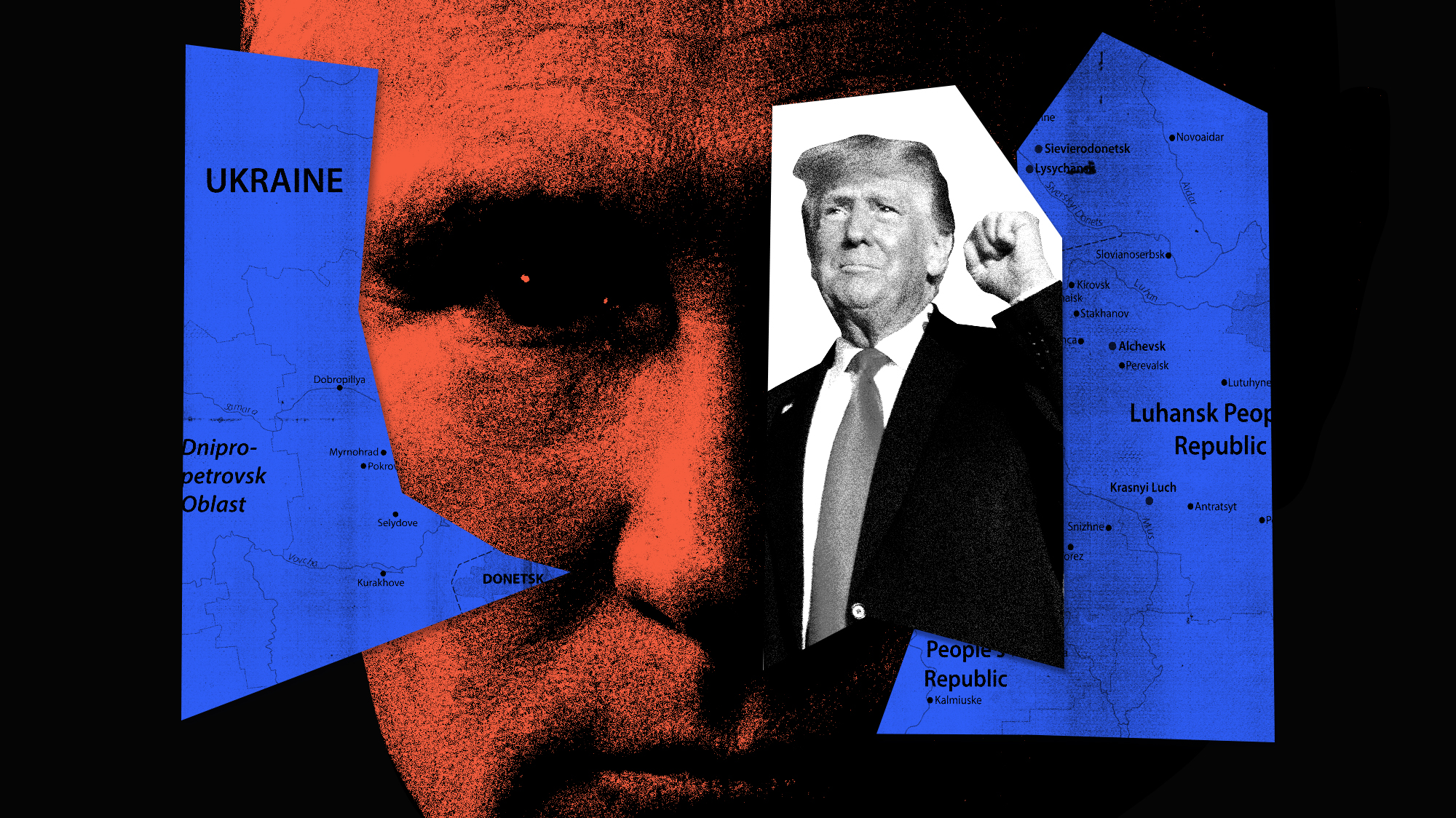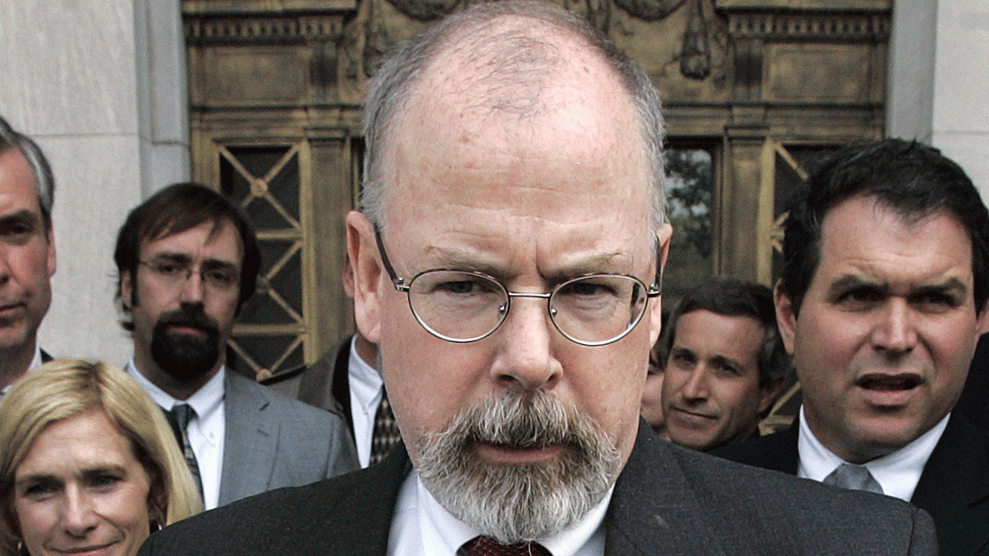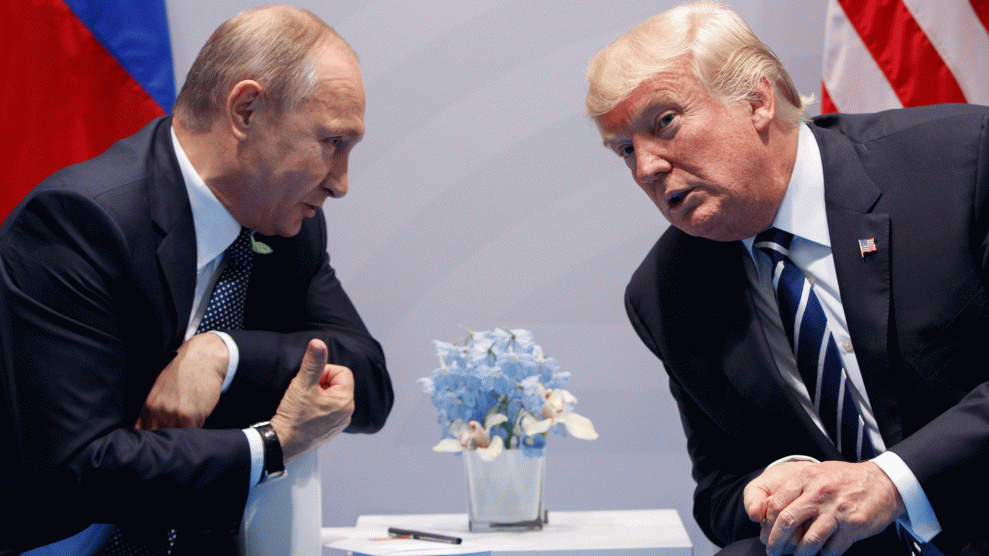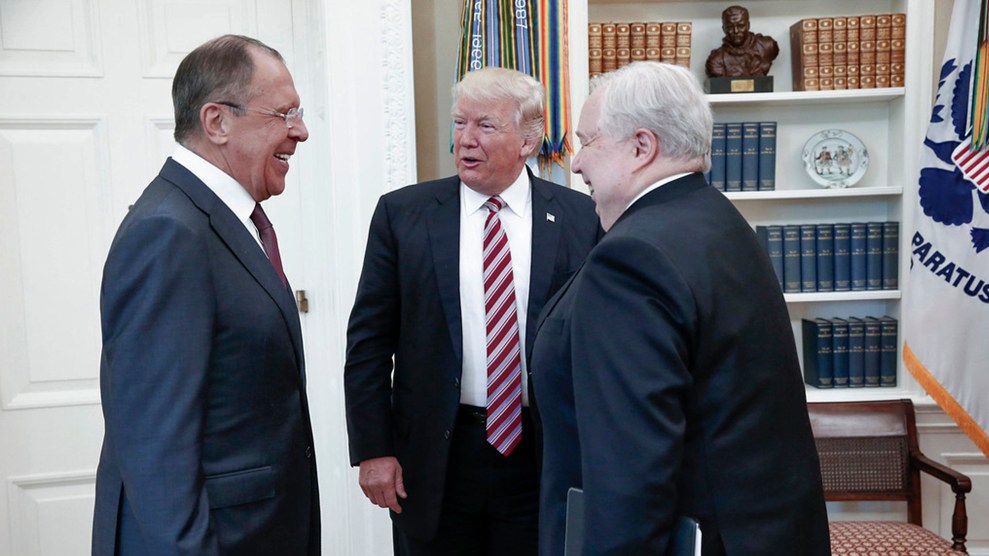For years, Donald Trump has incessantly railed against what he called “the Russia hoax” and denied Vladimir Putin’s attack on the United States. Yet the real Russia con was that very dismissal. And this fraud, perpetuated by Trump, his conservative minions, top Republicans, Fox, and other right-wing media, has led to Putin’s illegal invasion of Ukraine.
There are at least two ways that happened, and both originate with the Trump cult in 2016 (and onward) refusing to acknowledge Moscow’s assault on American democracy. Though numerous investigations concluded that Russia mounted a hack-and-dump operation and a covert social media campaign to sow political discord in the United States, cripple the campaign of Hillary Clinton, and help Trump win the presidency, Trump and his allies claimed at the time (and since) that no such thing had ever occurred—or they belittled its impact.
The reason was obvious: They placed political interests—electing Trump—over the national interest. Any acknowledgment of Putin’s clandestine efforts to assist Trump—and the Trump campaign had been privately informed in June 2016 that the Kremlin intended to secretly help it—could have hurt Trump during the campaign. So Trump howled there was no Russia attack, which transformed any discussion of the ongoing Russian attack into a partisan fight, thus preventing Republicans from joining the Obama administration effort to counter Putin. This provided cover for Putin, making it easier for him to get away with his assault on the United States.
Imagine how this looked to Putin. He had helped bring about a regime change in the most powerful nation of the world, installing in office an utterly inexperienced fellow who had been heaping praise on the corrupt Russian autocrat for years. What a victory! On election night 2016, an employee of Russia’s Internet Research Agency, which had been a key part of the Kremlin operation, sent a message reporting that cyber operatives there “uncorked a tiny bottle of champagne” when they found out Trump had won and “uttered almost in unison: ‘We made America great.’” At a celebration in Moscow, Dmitry Drobnitsky, a writer for pro-Kremlin outlets, exclaimed, “This is the real reset of the Western world.”
Pulling off this operation could only have emboldened Putin. Though he was hit with moderate sanctions afterward, the real economic or political cost of his skulduggery was negligible. For four years, Putin had an American president who not only didn’t challenge him, but also frayed US relations with European nations and denigrated NATO, a key strategic aim of Putin. As the first Trump impeachment illustrated, Trump even withheld military assistance from Ukraine to pressure President Volodymyr Zelenskyy to manufacture dirt on Joe Biden. Had Hillary Clinton been inaugurated president in 2017, would US policy have focused more on constraining Putin? Probably. Would it have succeeded in doing so and made the invasion of Ukraine less likely? That’s unknowable. But Trump and his fellow Russia hoax hoaxers afforded Putin running room that he has used to race into Ukraine.
Here’s the other connection between the Russia hoax and Putin’s assault on his democratic neighbor. The Kremlin’s attack on the American election was only one component of a much larger project targeting not merely the United States but the entire West. In the 2010s, the US government developed as a secret source a senior Russian government official who had access to Putin’s inner circle, as Michael Isikoff and I reported in our 2018 book, Russian Roulette: The Inside Story of Putin’s War on America and the Election of Donald Trump. This person was a goldmine of information on the Russian leader and his coterie. After Putin’s invasion and annexation of Crimea in 2014, the source told his American contact that hardliners around Putin were pressing him to seize more territory in the Russian-speaking provinces of Ukraine. More alarming was what the source said about Putin himself.
The source maintained that Putin was being heavily influenced by an ultranationalist Russian Orthodox monk, Father Tikhon Shevkunov—reportedly his spiritual guide and confessor—who was telling the Russian leader that his divine mission was to save Russia from its demise and to defend Christian values from the liberal, secular, and decadent West. (Shevkunov has recently been promoting a network of patriotic theme parks across Russia.) The source in 2014 also noted that Putin had developed an extensive plan for attacking Western institutions in order to undermine Western democracies through various clandestine operations: cyberattacks, information warfare, propaganda, and social media campaigns.
It’s no secret that Putin, the former KGB man, has resented the diminution of Russia since the collapse of the Soviet Union and has been looking to restore a Greater Russia. But he may also consider this a messianic obligation in which he’s spearheading a holy crusade against the West. His attack on the US election six years ago was neither a one-off nor an endgame in itself but part of this grandiose vision. Consequently, Moscow’s success in America likely fed Putin’s megalomania, and if he believes he’s answering a divine call, he must have regarded this as a righteous sign. The Trump cult-enabled victory empowered Putin and probably encouraged his ambition. If America could not stop him from wreaking havoc within its own borders, what could?
The consequences of Trump’s betrayal of America—aided and abetted by much of the right—are far from done. The nation remains bitterly divided and unable to address many of its problems. Its democratic institutions have been battered. The awful events in Ukraine are merely one slice of the Trump legacy—but a slice that includes death and destruction in Europe and even a veiled threat of nuclear war from Moscow. Trump’s indirect collaboration with Putin was the original sin of his presidency. Ukraine and the entire world are now suffering its horrific aftermath.
Images from left: Ramil Sitdikov/Sputnik/AP; Ben Gray/AP; Getty

















